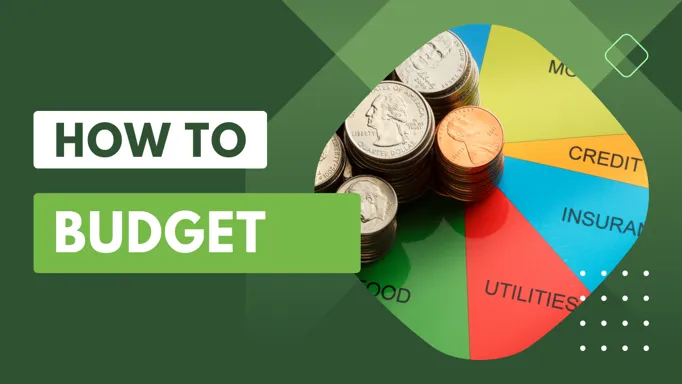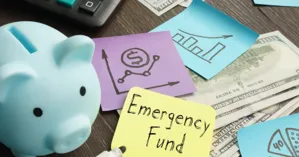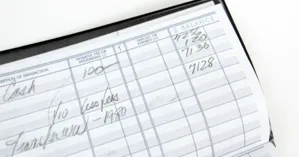- Quick Summary
- Make Sure You Have a Personal Finance Plan for Your Money
- The 50/30/20 Rule
- Be Realistic with Your Plan
- Build an Emergency Fund for Unexpected Expenses
- Don’t Deposit Savings in Your Checking Account
- Have a Separate Bank for Savings
- Keep a Sinking Funds
- Do a "Monthly Budget Date Night" to Track Expenses
- Order Groceries Online
- Automate Your Savings
- Track All Transactions
- Watch Those Impulse Buys
- Remove Saved Credit Cards
- Conclusion

- Quick Summary
- Make Sure You Have a Personal Finance Plan for Your Money
- The 50/30/20 Rule
- Be Realistic with Your Plan
- Build an Emergency Fund for Unexpected Expenses
- Don’t Deposit Savings in Your Checking Account
- Have a Separate Bank for Savings
- Keep a Sinking Funds
- Do a "Monthly Budget Date Night" to Track Expenses
- Order Groceries Online
- Automate Your Savings
- Track All Transactions
- Watch Those Impulse Buys
- Remove Saved Credit Cards
- Conclusion
The main thing you can do to help you be happier is to get your finances in order. If you're not paying your bills on time, you're stressed. If you don't have enough money to go to a movie, you're depressed. And if you're busy with your career, you may also feel frustrated about taking the time to fix your money troubles.
By getting your finances in order you can start enjoying life and not have to worry about financial stress. But it begins with a budget. Here are 13 of the latest budgeting hacks for busy professionals.
Make Sure You Have a Personal Finance Plan for Your Money

A budget is merely a plan. It’s a way of tracking all your expenses, what is coming in and going out every month. And you should take a few minutes to sit down and plan every month. You know what expenses are coming up and how much you’ll need. If you’re planning, there won’t be any surprises.
The 50/30/20 Rule
Choose a budgeting plan and monitor it. We like the 50/30/20 rule. That’s where 50 percent of your take-home pay goes toward living expenses. These could be rent, insurance, groceries, etc. You have these expenses every month. Then, 30 percent goes toward wants. That would be dinner out, clothes, concert tickets, etc. And finally, 20 percent of your check goes into a savings account. Incorporating debt repayment into this rule ensures that a portion of your income is allocated to paying off debts, contributing to long-term financial stability. If you follow this guideline, you’ll have manageable debt. You’ll also have a savings account.
Be Realistic with Your Plan
Go for the small wins. Don't create goals that will be difficult or impossible to achieve. For example, don't think you're going to go from not saving to slashing your want spending by 90 percent. Or don't assume you'll be able to have all your debt payments taken care of in two months. You'll be setting yourself up for failure. Instead, ease into it. Let it become a habit, not a hardship.
Build an Emergency Fund for Unexpected Expenses

Put money into an emergency fund, even if it’s only $25 per paycheck. You should have at least six months’ worth of salary, but start with a goal of one and build up to two, then three, and so on. Breaking it down into small goals will help you stay on the straight and narrow path to saving. Having an emergency fund can significantly reduce financial stress, providing a safety net for unexpected expenses.
Don’t Deposit Savings in Your Checking Account

Don’t keep your emergency fund or any savings in your checking account; instead, use separate bank accounts to manage your finances more effectively. It’s too easy to swipe that debit card and whittle away at it. Deposit it in a high-yield savings account. Many online banks have high-yield accounts.
Have a Separate Bank for Savings
Keep your savings account in another bank. Once more online banks are good for this. An account in an online bank will still be linked to your regular account, but it won’t be as convenient to access it. It’s the old out of sight out of mind philosophy. Additionally, consider setting up retirement accounts like 401(k)s or IRAs in a separate bank to ensure long-term financial security.
Keep a Sinking Funds
You’ve probably put your budget together only to have it torpedoed by unexpected expenses. It could be your cousin’s wedding you forgot about, or Aunt Virginia’s retirement party. You don’t want to dip into the emergency fund. Instead, keep an extra $100 or $200 in an account that you can use when these events pop up. That’s your sinking fund account.
Do a "Monthly Budget Date Night" to Track Expenses
Your partner and you should set a night once a month to budget regularly and work on the budget together. Order a pizza or cook and plan at the same time. When you’ve completed the budget, treat yourself to the latest binge-watching show.
Order Groceries Online

Don't go into the grocery store if you find yourself wandering around picking up random items. Grocery shopping without discipline can bust a budget. Plan your meals and shop online. You’ll avoid buying items you don’t need because you’re at home to check. You also won’t be tempted by that delicious-looking cake. Use your grocery store’s pickup, not the delivery services. That way you’ll save even more money.
Automate Your Savings
Ensure your money gets to the specific account without you touching it. If your employer allows it, have automatic payments made to your emergency fund account. It could also go to an investment or retirement account. But once more, it’ll be out of sight, out of mind. Automating contributions to retirement savings accounts like 401(k)s or IRAs can help ensure you are consistently saving for the future.
Track All Transactions
Track all your monthly expenses, everything you earn and everything you spend. When you buy gas, track it. If you have money coming in from a side hustle, track it. Track when you pay rent or buy clothes. You’ll be amazed at how much you spend versus how much you bring to the table. Tracking will help you stick to a budget. It’s a great way to stay accountable to yourself and your partner.
Watch Those Impulse Buys
Americans spend an average of $151 per month on impulse buys - that's the opposite of saving money. Think about what you could be doing with that money. When you see something you want to buy, think about it. Give yourself 48 hours to decide whether to buy it. You’ll probably forget about it and save yourself a few bucks. Setting spending limits can help you avoid impulse buys and stay within your budget.
Remove Saved Credit Cards

Remove the saved credit cards from your favorite online retailers. By doing that, you’ll now have the inconvenience of going to find your handbag or wallet. You may decide not to buy the item because it’s too much trouble to pay for it. If you have the card saved, you easily tap and you’ve just spent money. By removing saved credit cards, you can better control your spending patterns and avoid unnecessary purchases.
Conclusion
Mastering your finances doesn’t have to be overwhelming, even for busy professionals. With these 13 budgeting hacks, you can take control of your money, reduce stress, focus on debt repayment, and start building a more secure financial future. From following the 50/30/20 rule to automating your savings and avoiding impulse buys, these practical tips will help you stay on track and make budgeting a habit. By incorporating these strategies into your routine, you can enjoy financial freedom and peace of mind while continuing to focus on your career and personal life.



